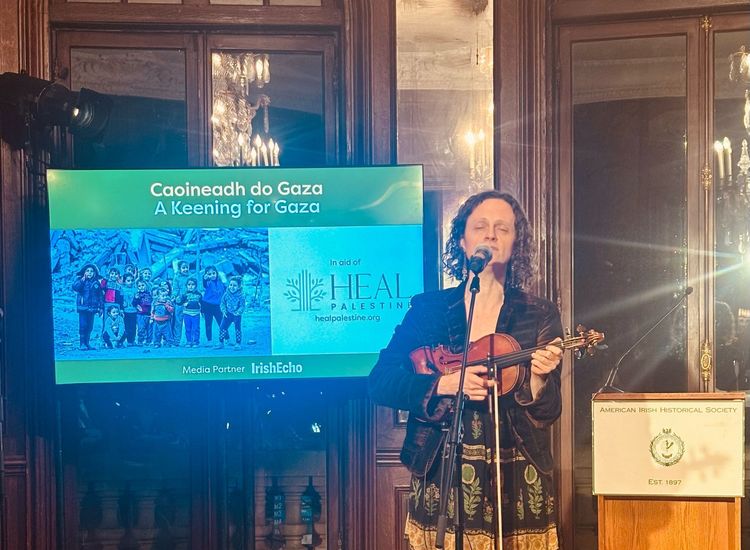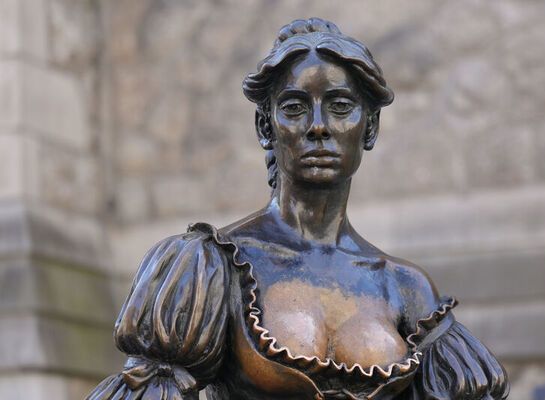CONTENTS (the report is 67 pages long and may also be downloaded at the Commission's web site, www.independentmonitoringcommission.org).
1. Introduction and context.
2. Scope of the Report
3. Paramilitary groups ? organisation and assessment of current activities
4. The incidence of violence by paramilitary groups
5. Incident in Belfast on 20 February 2004
6. Paramilitary groups ? non-terrorist crime, funding and local control
7. Leadership of paramilitary groups
8. Conclusions and recommendations
ANNEXES
I. Articles 4 and 7 of the International Agreement
II. IMC Statement issued on 9 March 2004
III. Summary of measures the IMC can recommend for action by the Northern Ireland Assembly
1. INTRODUCTION AND CONTEXT
1.1 We submit this report under Articles 4 and 7 of the International Agreement establishing the Independent Monitoring Commission. Article 4 directs us to look at the continuing activities of paramilitary groups. Article 7 allows us when reporting under Article 4 to recommend any remedial action we consider necessary or measures we consider might appropriately be taken by the Northern Ireland Assembly. At the request of the two Governments we report three months earlier than originally expected and also specifically address the incident which took place at Kelly?s Cellars, Belfast on 20 February 2004, putting it in the context of our wider analysis.
1.2 We issued a statement on 9 March setting out how we were going about our work and the principles that would guide us. That statement is at Annex II and we invite readers to refer to it.
The IMC?s objective in Article 3
"The objective of the Commission is to carry out [its functions] with a view to promoting the transition to a peaceful society and stable and inclusive devolved Government in Northern Ireland."
1.3 We address our objective in Article 3 very conscious that we work in a complex environment with a long history, and one in which opinions are strongly held. Our objective has been shared by many for a long time. People have worked towards it in numerous ways, publicly and in countless private and unsung capacities throughout Northern Ireland. Moreover a number of other bodies have been set up to serve in different ways the same ultimate purpose. The IMC is the newest amongst them. We are acutely aware therefore that our contribution can only complement what others have done and are doing and that other acts of completion besides what we are concerned with are necessary. What we are dealing with is the challenge of helping make the rule of law work. The challenge of making politics work is for others.
1.4 The IMC was established nearly ten years after the first PIRA ceasefire and some six years after the Belfast Agreement. Its immediate origins lie in the Joint Declaration of the British and Irish Governments of May 2003. These three events remind us of the difficulty and delicacy of the peace process and the political process whereby Northern Ireland has been emerging from the troubles. Our aim is to help people leave those troubles further behind. We also fully recognise the strength of views held on both sides of the community about the history and the future of Northern Ireland.
1.5 We have had this context fully in mind in preparing this report. But we have a job to do, and we will do it to the best of our ability. We will do the same when fulfilling the two other parts of our remit in future, namely to report on security normalisation and on claims made to us by parties represented in a restored Assembly .
The IMC?s guiding principles are:
- The rule of law is fundamental in a democratic society.
- We understand that there are some strongly held views about certain aspects of the legal framework, for example the special provisions applying to terrorism, and that those holding these views will continue to seek changes. But obedience to the law is incumbent on every citizen.
- The law can be legitimately enforced only by duly appointed and accountable law enforcement officers or institutions. Any other forcible imposition of standards is unlawful and undemocratic.
- Violence and the threat of violence can have no part in democratic politics. A society in which they play some role in political or governmental affairs cannot ? in the words of
Article 3 ? be considered either peaceful or stable.
- Political parties in a democratic and peaceful society, and all those working in them, must not in any way benefit from, or be associated with, illegal activity of any kind, whether involving violence or the threat of it, or crime of any kind, or the proceeds of crime. It is incumbent on all those engaged in democratic politics to ensure that their activities are untainted in any of these ways.
- It is not acceptable for any political party, and in particular for the leadership, to express commitment to democratic politics and the rule of law if they do not live up to those statements and do all in their power to ensure that those they are in a position to influence do the same.
2. SCOPE OF THIS REPORT
2.1 Article 4 encompasses the activities of paramilitary groups in the widest sense. We deal not only with terrorism and sectarian violence but with all other forms of criminality that these groups commit. The Article thus goes beyond the terms of paragraph 13 of the Joint Declaration of May 2003, and we intend to make full use of this wider scope. Overall the peace process has brought about huge improvements. Nevertheless, we are deeply concerned about the extent of continuing paramilitary activity and the impact it has on communities in Northern Ireland.
2.2 We want our report to meet our objective as set out in Article 3 of the International Agreement and in the process to serve the widest possible interests of the people of Northern Ireland. We understand the sensitive political circumstances in which we deliver our report. But there is little point in our being less than forthright for fear that we might upset people in one quarter or another. We know that a number of the things we say are likely to be uncomfortable to some of those who read them. We believe we have a role to play in helping refocus discussion and in spotlighting things which we believe have received too little attention. We hope very much that people will let us have their views on this report.
2.3 We have carefully considered the relevance of the term ceasefire to our work. We recognise that the ceasefires have played a key part in the wider peace process and we acknowledge the efforts made in sustaining them. We also recognise their contribution to the improvement of daily life in Northern Ireland. However Article 4 is not concerned with the observance or otherwise of ceasefires and means that ceasefire is too narrow a term for us. We believe that Article 4 represents a substantial shift of focus and that everybody should move on from debating whether or not a ceasefire has been broken to concentrate on the full range of illegal activity by paramilitaries and the impact it has on communities in Northern Ireland. We seek to contribute to that in this report.
2.4 All organisations are more effective if set a challenge and the IMC is no exception. To help us fulfil our task we have set ourselves this one:
To contribute in whatever way we can to the ending of the violence, other criminality, and exertion of pressure by or on behalf of paramilitary groups, and to help the people of Northern Ireland live their lives untroubled by paramilitary activity.
2.5 Throughout our work on paramilitary activity we have asked ourselves two questions. What does it mean for the people of Northern Ireland? How can we play our part in helping them move to more peaceful times? This leads us to look at how paramilitaries exercise control within some parts of Northern Ireland; at what amount in some places to alternative and unofficial criminal justice arrangements; at the issue of links between the leadership of political parties and paramilitary organisations. We have heard many times, including from bereaved families and others who have experienced the suffering caused by paramilitary violence, of the increasing stranglehold that these groups have over some communities. We are all too aware of how violence, threats and fear can affect individuals and communities. These are all insidious features, which can only corrupt a society. We believe it is our task to contribute to their rooting out, though we recognise that in any society there will be varying levels of criminality, organised or not, and that it is not our job to address crime as such.
2.6 We are also entirely clear in our own minds, as we set out in the principles we published on 9 March, that political parties in a democratic and peaceful society must not benefit from or be associated with illegal activity of any kind. All who claim to espouse democratic principles must accept that authority can be exercised only through the accountable organs of the state. Here there can be no compromise or fudge.
2.7 There are two further preliminary points. First, we are delivering this report in half the time we had expected to have. We have not been able to pursue a number of issues in the depth we intend. In the short time since we were established people have already started to come forward to us with information and we have been able to embark on a dialogue with all sections of the Northern Ireland community. We believe this dialogue is essential if we are to do our job effectively. In this report we focus mainly on the use of violence by paramilitary groups. Future reports will deal with the connections between these groups and organised crime and with their sources of funding.
2.8 Second, people have been very forthcoming and we have acquired a wide range of information ? from official sources, political parties, journalists, people in business and in academic life, and from private individuals, including from the bereaved and others who have suffered at the hands of paramilitary groups. We understand that some are sceptical about the nature of the information we receive, especially from official bodies. We are constantly broadening our sources and will acquire much more information. We urge people to come to us with information and views on everything covered by our remit. We assure them, as we have everybody so far, that we will observe any confidences they wish. In the nature of things, much of the information is sensitive. We are bound by law not to put anybody at risk, not to prejudice legal proceedings, and not to prejudice the national security interests of the UK or Ireland. We have applied our best judgement to all of the material available to us, from whatever source we have received it, and the findings and recommendations we make are the result of our own considered assessment of that material.
3. PARAMILITARY GROUPS ? ORGANISATION AND ASSESSMENT OF CURRENT ACTIVITIES
3.1 In this Section we briefly examine paramilitary groups in turn. The conclusions we draw are all based on the information available to us. We deal in Section 4 with the incidence of violence by paramilitary groups and in Section 7 we examine further the question of the leadership of paramilitary groups and any links with that of political parties.
Continuity Irish Republican Army (CIRA) and Republican Sinn F








